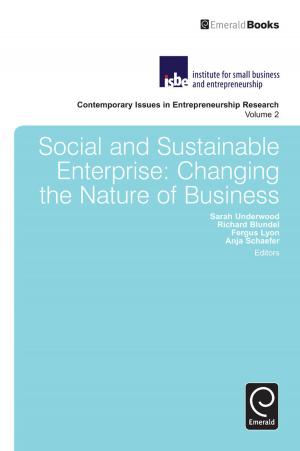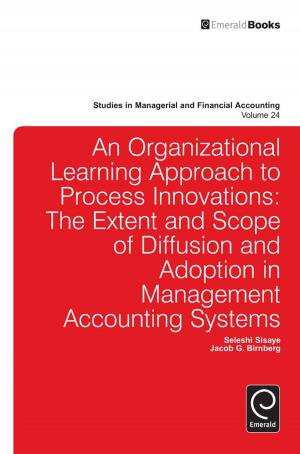International Perspectives on Crowdfunding
Positive, Normative and Critical Theory
Business & Finance, Career Planning & Job Hunting, Entrepreneurship, Entrepreneurship & Small Business| Author: | ISBN: | 9781785603143 | |
| Publisher: | Emerald Group Publishing Limited | Publication: | April 29, 2016 |
| Imprint: | Emerald Group Publishing Limited | Language: | English |
| Author: | |
| ISBN: | 9781785603143 |
| Publisher: | Emerald Group Publishing Limited |
| Publication: | April 29, 2016 |
| Imprint: | Emerald Group Publishing Limited |
| Language: | English |
Crowdfunding as an entrepreneurial phenomenon substitutes traditional sources of finance (banks, financial markets, governments) for the crowd. Socially and economically, it is challenging the traditional boundaries that have been set for centuries between industry, the financial sector, and the public. Though its basic principle cannot be considered as a radical innovation, crowdfunding as a rapidly growing practice calls for renewed management, legal, and governance patterns. Descriptive inquiries on "how to do it" are multiplying but crowdfunding remains a fuzzy subject for research and reflexivity. This book gathers the best recent research outcomes on the managerial and social impact of this new practice. The need for theory is three-fold, for both scholars and practitioners. Positive theory is needed to understand how projects are organised, how (and why) they may succeed or fail and how governments consider this new practice and try to regulate it. Normative theory can provide templates and "recipes" to develop projects, and provide advice on which models are more efficient. Finally, critical theory is needed to consider the social and economic impact of crowdfunding.
Crowdfunding as an entrepreneurial phenomenon substitutes traditional sources of finance (banks, financial markets, governments) for the crowd. Socially and economically, it is challenging the traditional boundaries that have been set for centuries between industry, the financial sector, and the public. Though its basic principle cannot be considered as a radical innovation, crowdfunding as a rapidly growing practice calls for renewed management, legal, and governance patterns. Descriptive inquiries on "how to do it" are multiplying but crowdfunding remains a fuzzy subject for research and reflexivity. This book gathers the best recent research outcomes on the managerial and social impact of this new practice. The need for theory is three-fold, for both scholars and practitioners. Positive theory is needed to understand how projects are organised, how (and why) they may succeed or fail and how governments consider this new practice and try to regulate it. Normative theory can provide templates and "recipes" to develop projects, and provide advice on which models are more efficient. Finally, critical theory is needed to consider the social and economic impact of crowdfunding.















